Shi‘ur komah (Dimensions of the [Divine] Body)
Moses Cordovero
Second Half of the 16th Century
The essence of divinity is found in every single thing—nothing but it exists. Since it causes every thing to be, no thing can live by anything else. It enlivens them; its existence exists in each existent.
Do not attribute duality to God. Let God be solely God. If you suppose that Ein Sof [the infinite—Ed.] emanates until a certain point, and that…
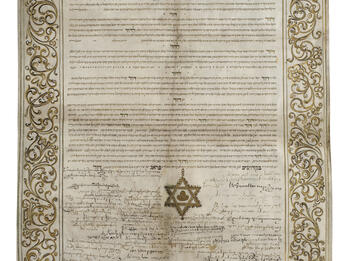
Related Guide
Early Modern Rabbis and Intellectuals on the Move
Carrying books and knowledge, itinerant rabbis and scholars traveled between communities, facilitating cultural exchange.
Related Guide
The Rise of Kabbalah
Kabbalah spread widely after the Spanish expulsion. The Zohar's printing in Italy, Safed's influential kabbalistic center, and Shabbetai Tzvi's messianic movement popularized mystical ideas across Jewish communities.
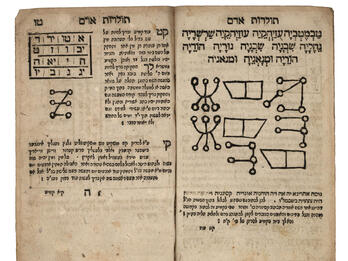
Related Guide
Early Modern Spiritual Ideologies
Early modern Jewish spiritual life encompassed diverse elements, including theology, ethics, liturgy, and messianism.
Creator Bio
Moses Cordovero
Moses Cordovero was a leading kabbalist in Safed, a disciple of Joseph Karo, and a teacher of Isaac Luria. Although his birthplace is unknown, he was probably of Spanish origin. He began studying kabbalah at age twenty and completed his first large systematic work, Pardes rimonim (Garden of Pomegranates), at twenty-seven. Cordovero synthesized the different trends of kabbalah up to his time, endeavoring to construct a speculative kabbalistic system. He was also influenced by medieval philosophers and acknowledged the utility of philosophy in other works, such as Elimah rabbati. His Tomer Devorah (The Palm Tree of Deborah) laid the basis for the kabbalistic ethical literature that flourished in the sixteenth through eighteenth centuries and influenced many later kabbalistic moralists. In another work, Or ne‘erav (Pleasant Light), Cordovero explained the importance of studying kabbalah and censured those who studied it without the necessary prior knowledge. His commentary on the Zohar, Or yakar, remained unpublished until the twentieth century.
You may also like
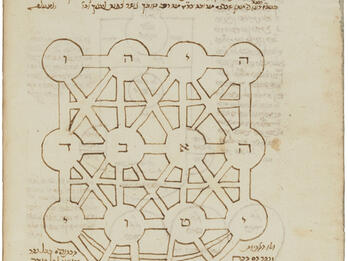
Kabbalistic Diagram
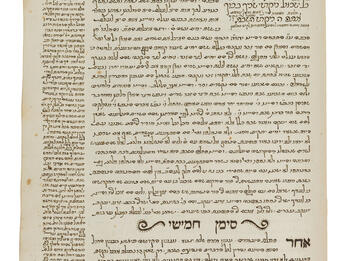
Title Page of Moses Cordovero’s Tefilah le-Moshe (Prayer of Moses)
Sefer ha-gilgulim (The Book of Reincarnations)
Sha‘ar ha-yiḥudim (The Gate of Unifications)
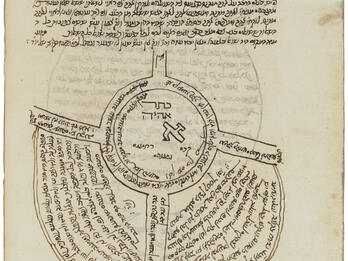
Sha‘ar ha-hakdamot (The Gate of Introductions)



